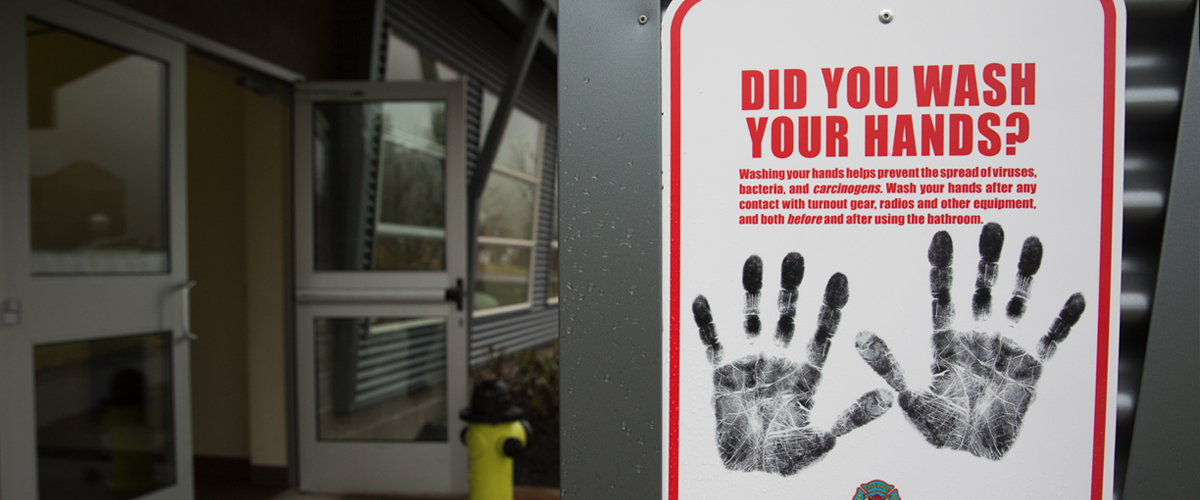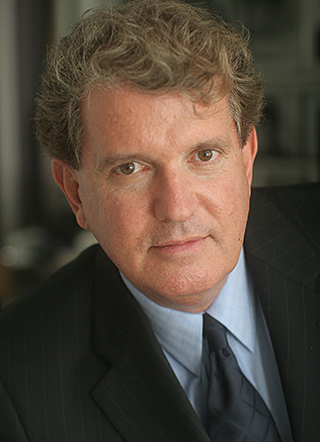A Road Map to Finding Calm Amid Coronavirus Anxiety
In these uncertain times, a leading cognitive therapy expert offers tips to manage anxiety during an outbreak.


As updates about the rapid spread of the new coronavirus dominate the news and social media feeds and efforts to contain it disrupt our daily routines, it’s natural to feel unsettled and have anxiety about coronavirus. So how do you stay calm during an outbreak?
The most important thing a person can do, according to Dr. Robert Leahy, an attending psychologist at NewYork-Presbyterian/Weill Cornell Medical Center, the author of The Worry Cure, and a national expert in cognitive therapy, is strike a balance between recognizing the potential threat while avoiding unnecessary panic.
“You can’t deny there is a pandemic, so it’s important to take reasonable action, like following the guidelines released by the Centers for Disease Control and Prevention (CDC), which include practicing proper hand hygiene, social distancing, and avoiding unnecessary travel and crowded places, if possible,” says Dr. Leahy, who is also a clinical professor of psychology in psychiatry at Weill Cornell Medicine. “But it’s [also] important to keep the situation in perspective, focus on the things you can control, and limit the intensity and frequency of your worry.”
Here, Dr. Leahy offers a road map to finding calm during the outbreak of the new coronavirus, which causes the disease being called COVID-19, and tips for managing coronavirus anxiety.
Validate your feelings
Telling someone not to worry never works, and the same goes for yourself. Instead, acknowledge the situation and how you feel about it. Remember, you have the right to be anxious — but you also have the ability to cope with it in a more constructive way.
Start by distinguishing between probability and possibility
An extreme example of a possibility is thinking that you might die from COVID-19. Like any number of situations, it’s a possibility, but you can’t live your life focused on all the possibilities; you make choices based on probability. For the general American public, the probability of dying from the novel coronavirus remains low, so shift your mindset, and focus on the most probable outcome.

Dr. Robert Leahy
Take media breaks
Googling “Cases of coronavirus” every few hours will quickly become mentally taxing and ramp up coronavirus anxiety. Instead, try compartmentalizing. Limit your intake of the news to about 15 minutes a day so you can stay informed about developments, such as school closings or changes in travel advisories. (Also important: Make sure your news comes from credible sources.) But then focus on more productive tasks, like taking care of your family, finishing your work, or finding time to relax.
Putting limits on your news consumption and shifting your attention back to day-to-day duties will help quiet your worry and coronavirus anxiety. When you get a worrisome thought, and that worry is off and running, you might get a case of what I call “Google-itis” — obsessively searching the internet about your concern. You have a choice in where you put your attention, so keep tabs on how much news you consume and carry on with the routine parts of life that are within your control.
Schedule “worry time”
Most of my patients have success with this: Set aside 15 to 20 minutes in the afternoon and make an appointment with your worry. If you have persistent worries about COVID-19 during the day, write them down and tell yourself, “I’ll get to this around 3 p.m.” When it’s time to worry, ask yourself if your negative thought is productive or unproductive.
There is a difference between productive and unproductive worry. Productive worry leads to taking action on something you can do today. For example, what can you do to reduce your risk? Wash your hands, use a tissue — do all the things that the CDC recommends. That is productive action. Unproductive worry is asking yourself, “What if …?” For example, “What if I’m walking down the street and someone coughs on me? What if I was in a meeting and accidentally touched someone infected?” These things are beyond our control, and the worry is unproductive.
I’m not telling people not to worry, but if you’re going to worry, set aside a time so it doesn’t consume you, and then turn it into productive action.
Put it in perspective
The goal is not to get rid of worry but to put it in perspective. It’s wise for hospitals and governments to be monitoring this situation, quarantining, and setting restrictions to reduce the spread. It may feel concerning, but remember that government and healthcare officials are taking measures that disrupt people’s daily routines in an effort to be prepared and address the situation. Just because they are taking all these precautions doesn’t mean it will result in the worst-case scenario.
Find the balance between following proper health guidelines and reducing the intensity and frequency of your worry. Don’t be overly positive or foolish and disregard the prudent guidelines, but ask yourself if your thoughts are productive or unproductive. You can’t control certain things, but you can control where you put your attention, and you can take care of yourself by exercising, eating right, and spending time with your family.
Robert Leahy, Ph.D., is an attending psychologist at NewYork-Presbyterian/Weill Cornell Medical Center and a clinical professor of psychology in psychiatry at Weill Cornell Medicine. He is the director of the American Institute for Cognitive Therapy.

